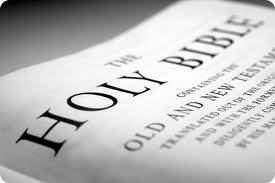From the Gospel according to John:
As Jesus walked along, he saw a man blind from birth. His disciples asked him, “Rabbi, who sinned, this man or his parents, that he was born blind?” Jesus answered, “Neither this man nor his parents sinned; he was born blind so that God’s works might be revealed in him.”
(From the Daily Office Lectionary – John 9:1-3 (NRSV) – March 18, 2013.)
 I’m not the least bit sure I like the last thought of Jesus reply . . . Is he suggesting that a loving God caused this innocent man’s blindness so that Jesus could come along and heal him with some mud made of spittle and demonstrate his power? I mean, really, is he? I don’t want to get into that today, but surely there must be another interpretation for Jesus words and perhaps someday I’ll explore that.
I’m not the least bit sure I like the last thought of Jesus reply . . . Is he suggesting that a loving God caused this innocent man’s blindness so that Jesus could come along and heal him with some mud made of spittle and demonstrate his power? I mean, really, is he? I don’t want to get into that today, but surely there must be another interpretation for Jesus words and perhaps someday I’ll explore that.
Today, I want to focus on the first clause of his answer, which is basically just a wordy, “No.” As a parent, I cannot tell you how happy it makes me that the man’s blindness was not his parents’ fault! Because accepting that blame is all too often our parental response when things go wrong in our children’s lives . . . . It doesn’t really matter what it is – accident, illness, bad grades, suspension from school, trouble with the law, break-up with their partner or spouse – it doesn’t matter what it is, when something goes wrong in our children’s lives a parent’s response is often an overwhelming sense of guilt. “What did I do wrong that this happened to my child?”
This is, after all, a perfectly acceptable biblical view! In the Book of Exodus, Moses told the Hebrews that God does not “clear the guilty, but visits the iniquity of the parents upon the children and the children’s children, to the third and the fourth generation.” (Exod. 34:7 NRSV) And again the same words are reported the Book of Numbers: “The Lord is slow to anger, and abounding in steadfast love, forgiving iniquity and transgression, but by no means clearing the guilty, visiting the iniquity of the parents upon the children to the third and the fourth generation.” (Numb. 14:18 NRSV) And, again, in Deuteronomy, Moses says, “Be careful to obey all these words that I command you today, so that it may go well with you and with your children after you forever, because you will be doing what is good and right in the sight of the Lord your God” (Deut. 12:28 NRSV) implying that disobedience would mean things wouldn’t go well for the kids! Finally, there is that great biblical proverb reported by both Jeremiah and Ezekiel: “The parents have eaten sour grapes, and the children’s teeth are set on edge.” (Jer. 31:29 and Ezek. 18:2 NRSV)
So there is plenty of biblical support for our parental guilt pangs! But here is Jesus saying that the sins of parents are not responsible for the misfortune of their son. Thanks be to God! What that says to me is that we need to start looking at our feelings of parental remorse in a different way.
Not that those feelings are “wrong” or “bad.” Guilt is a basic human emotion. Everyone feels it and, when it comes to parenting, whatever we do is liable to cause us a little bit of guilty self-reproach because it sometimes seems that “you’re damned if you do and you’re damned if you don’t.” What if, instead of beating ourselves up over these things, we think of what feels like guilt as simply evidence that we are being good parents, good enough to be constantly thinking about what we’re doing and how we’re doing it? We care enough to do our best at the very important, frequently frustrating, often terrifying, and even more often incredibly rewarding job of raising children we love more than we will ever be able to tell them. No parent is perfect, but the ones who worry about whether they are doing it well, probably are doing it well, really well.
Here’s something I know. During the past sixty or so years that I’ve been alive, I’ve had a lot of rough patches, a lot of problems. I’ve done some bonehead things and made some really stupid mistakes. I’ve been in trouble with various authorities, and broken up with lovers and partners. And you know what? Very little of any of that was my parents’ fault! On the other hand, I’ve gotten through those rough spots. I’ve solved the problems. I’ve learned from my mistakes and avoided doing even more boneheaded stuff. I’ve made up with the lovers and, if I haven’t made up with the authorities, at least I’ve figured out how to work with them. And you know what? Most of my ability to do so is due to what I learned from my parents, from what I observed of the way they lived their lives and from the values they taught me. They may have eaten some sour grapes, I don’t know, but my teeth were not set on edge.
I love my kids a whole lot more than I can ever tell them, and I can only hope they have learned from me the way I learned from my folks.
====================
A request to my readers: I’m trying to build the readership of this blog and I’d very much appreciate your help in doing so. If you find something here that is of value, please share it with others. If you are on Facebook, “like” the posts on your page so others can see them. If you are following me on Twitter, please “retweet” the notices of these meditations. If you have a blog of your own, please include mine in your links (a favor I will gladly reciprocate). Many thanks!
====================
Father Funston is the rector of St. Paul’s Episcopal Church, Medina, Ohio.
 Years ago, my wife and I were active in the Cursillo community in another state. In fact, we met through that community, so it was very important to us. We participated in the three-day weekends; we took part in the reunions; we even had the “De Colores” bumper-stickers on our cars. At that time, folk masses and simple guitar-accompanied choruses were also popular in the Episcopal Church and a lot of the music used in the Cursillo movement spilled over into church on Sundays and at other times. A favorite of many people was a tune which mixed Jeremiah’s potter metaphor with some of Jesus’ language from the Gospels:
Years ago, my wife and I were active in the Cursillo community in another state. In fact, we met through that community, so it was very important to us. We participated in the three-day weekends; we took part in the reunions; we even had the “De Colores” bumper-stickers on our cars. At that time, folk masses and simple guitar-accompanied choruses were also popular in the Episcopal Church and a lot of the music used in the Cursillo movement spilled over into church on Sundays and at other times. A favorite of many people was a tune which mixed Jeremiah’s potter metaphor with some of Jesus’ language from the Gospels: St. Paul wrote some great stuff. He’s treatise on love in the thirteenth chapter of the first letter to the church in Corinth is brilliant! He wrote (or, at least, is blamed for) some incredibly stupid stuff, too: telling women to be silent in the very next chapter of First Corinthians, for example, or sending Onesimus back to Philemon without clearly denouncing the institution of slavery.
St. Paul wrote some great stuff. He’s treatise on love in the thirteenth chapter of the first letter to the church in Corinth is brilliant! He wrote (or, at least, is blamed for) some incredibly stupid stuff, too: telling women to be silent in the very next chapter of First Corinthians, for example, or sending Onesimus back to Philemon without clearly denouncing the institution of slavery.  “We hold these truths to be self-evident, that all men are created equal, that they are endowed by their Creator with certain unalienable Rights, that among these are Life, Liberty and the pursuit of Happiness.” There is an undeniable link between truth and autonomy, between authenticity and independence. Those who seek to take away liberty do so by use of falsehood, and most effective untruths are those which are the biggest. Adolph Hitler described the phenomenon:
“We hold these truths to be self-evident, that all men are created equal, that they are endowed by their Creator with certain unalienable Rights, that among these are Life, Liberty and the pursuit of Happiness.” There is an undeniable link between truth and autonomy, between authenticity and independence. Those who seek to take away liberty do so by use of falsehood, and most effective untruths are those which are the biggest. Adolph Hitler described the phenomenon: Scholars and commentators seem to agree (and a computer search of various translations confirms) that there is no single verse of the Hebrew scriptures saying what John says Jesus quoted. It seems to be an amalgam or summary of several different bits of the prophets. When I read this story of John’s, however, it isn’t a prophet that comes immediately to mind. Instead, I think of a portrayal of Lady Wisdom in the Book of Proverbs:
Scholars and commentators seem to agree (and a computer search of various translations confirms) that there is no single verse of the Hebrew scriptures saying what John says Jesus quoted. It seems to be an amalgam or summary of several different bits of the prophets. When I read this story of John’s, however, it isn’t a prophet that comes immediately to mind. Instead, I think of a portrayal of Lady Wisdom in the Book of Proverbs: It’s called bibliolatry and it’s been around a long, long time. The dictionary definition of bibliolatry is “excessive reverence for the Bible as literally interpreted.” What I most enjoy about modern bibliolatry is that it denies that it is bibliolatry in the most circular and bibliolatrous of ways.
It’s called bibliolatry and it’s been around a long, long time. The dictionary definition of bibliolatry is “excessive reverence for the Bible as literally interpreted.” What I most enjoy about modern bibliolatry is that it denies that it is bibliolatry in the most circular and bibliolatrous of ways.  Recently, a graphic has been making the rounds on Facebook. I received it from another church and posted it on my parish’s Facebook page about 24 hours ago with the caption, “Something to think about.” As of the moment I am writing, this graphic has been “liked” 235 times. It has been shared 1,412 times. And according to Facebook’s calculations, it has been seen over 132,400 times. That’s only as originating our page. It is being posted and shared on other pages and, no doubt, has even larger numbers than these at some of those other pages.
Recently, a graphic has been making the rounds on Facebook. I received it from another church and posted it on my parish’s Facebook page about 24 hours ago with the caption, “Something to think about.” As of the moment I am writing, this graphic has been “liked” 235 times. It has been shared 1,412 times. And according to Facebook’s calculations, it has been seen over 132,400 times. That’s only as originating our page. It is being posted and shared on other pages and, no doubt, has even larger numbers than these at some of those other pages. A few days ago I wrote about my interest in superstring theory, m-theory, and the multiverse concept which springs from my life-long love of science fiction and the especially the “alternate reality” sorts of tales. I suggested that Jesus’ miracles might have been accomplished by his somehow accessing an alternate reality to affect this world; that would imply some sort of access to knowledge of those other universes.
A few days ago I wrote about my interest in superstring theory, m-theory, and the multiverse concept which springs from my life-long love of science fiction and the especially the “alternate reality” sorts of tales. I suggested that Jesus’ miracles might have been accomplished by his somehow accessing an alternate reality to affect this world; that would imply some sort of access to knowledge of those other universes.


